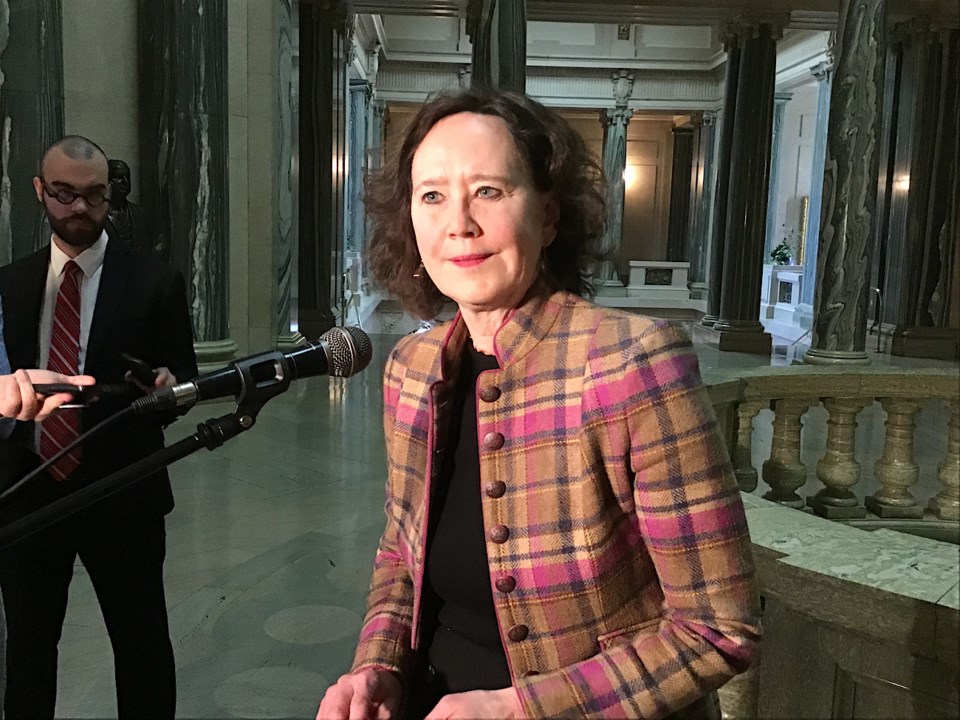REGINA - The province of Alberta will be an intervenor in Saskatchewan’s appeal of the Parents’ Bill of Rights case going to the Saskatchewan Court of Appeal.
The province is appealing the decision of Justice Michael Megaw at the Court of King’s Bench on the UR Pride court case against the province’s Parents’ Bill of Rights legislation — the legislation requiring parental consent for name changes for students under 16 in schools.
In his decision, Megaw had ruled that despite the use of the Notwithstanding Clause, the court can and should intervene to review the law for compliance with the Charter of Rights and Freedoms.
Saskatchewan Minister of Justice and Attorney General Bronwyn Eyre and Alberta Minister of Justice and Attorney General Mickey Amery issued the following joint statement Tuesday which reads as follows:
“Saskatchewan and Alberta agree that the key figures in children’s lives are their parents, and our provinces are both committed to supporting families and kids so they can work through unique needs together. Notifying parents and requiring their consent before a child’s name or pronouns can be changed in schools, and before classroom discussions about gender identity and other sensitive subjects occur ensures the parent-child relationship is respected and paramount.
“Alberta has written to the Saskatchewan Court of Appeal advising of our intention to apply to intervene in Saskatchewan’s appeal of the UR Pride decision of the Saskatchewan Court of Kings Bench.
“Alberta will seek to advance legal arguments that Saskatchewan’s use of section 33 of the Charter (the Parliamentary Supremacy Clause) should have prevented Saskatchewan’s Court of King’s Bench from reviewing the constitutionality of the Education (Parent’s Bill of Rights) Amendment Act, 2023 legislation. This case has the potential to not only impact parental rights across Canada, but also the application of the Parliamentary Supremacy Clause, which has been an integral piece of the Canadian Charter of Rights and Freedoms and the Constitution of Canada since 1982.”
In speaking to reporters Tuesday afternoon Minister Eyre welcomed Alberta’s involvement in the appeal.
“I think it certainly drives home the importance of the constitutional question at issue, and that’s really an issue of parliamentary sovereignty, of separation of powers if you like between the judiciary and the legislative,” said Eyre.
“As Alberta mentioned in its statement, this is really an issue of parliamentary sovereignty. There is a very important constitutional issue in place here on whether the notwithstanding clause is the final word when a legislature invokes it and that’s one I think certainly Alberta is interested now in pursuing constitutionally at the Court of Appeal and we hope other provinces as well.”
Eyre also said she has had “good conversations” with other Ministers of Justice in other provinces and said “we think the constitutional principle at stake here around parliamentary sovereignty is important and we hope other provinces agree with us on that legal constitutional issue.”
Opposition Justice Critic Nicole Sarauer made it known to reporters she didn’t think this court fight should be a priority of the government.
“The fact that the Minister is walking out and parading this as a big announcement, a big accomplishment is a perfect example of how incredibly out of touch this government has become,” said Sarauer. “There are many priorities this government should be focusing on right now: the rising cost of living, the fact that our healthcare system is in the state of crisis, staffing is a huge problem, waitlists are through the roof. Yet we’ve got the minister of justice walking out and acting like any of this is a big accomplishment.”
Sarauer said the government “clearly does not want to have a judge tell them what we already know, that what they have done infringing on the rights of vulnerable children is a Charter jet violation. And they’re going to delay the inevitable, which is the fact that this was a Charter violation, and an egregious decision from this government, for as long as they can.”
(This story has been edited to update the language in the province's statement.)






